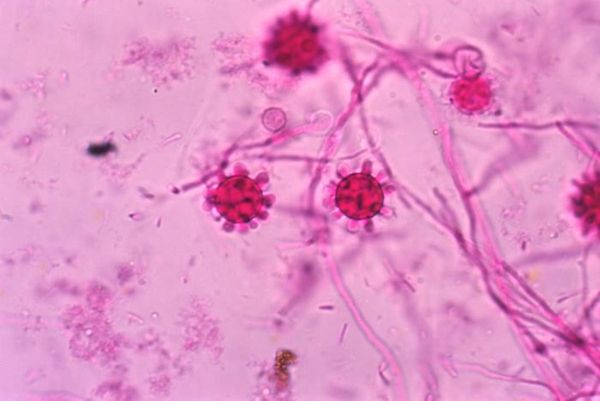
Catalonia’s president has hailed a “new stage” in the quest for regional self-determination after a vote by MPs backing the Spanish government’s deeply divisive amnesty law, and vowed to continue pushing for a mutually agreed referendum if he wins another term in May’s snap election.
Pere Aragonès, who has led the regional government for the past three years, told the Guardian that the amnesty – demanded by Catalan separatist parties in return for helping Spain’s Socialist-led coalition back into power after last year’s election – had validated his decision to pursue political negotiations with the prime minister, Pedro Sánchez.
“I think Catalonia is looking forwards now, and it’s looking forwards so it can open a new stage following the amnesty,” Aragonès said. “That new stage needs to be based on bringing about a jointly agreed referendum. And those best placed to stand up for an agreed referendum are those of us who’ve banked on dialogue and negotiation in an honest way.”
Aragonès, a member of the Catalan Republican Left party (ERC), has taken a more moderate and pragmatic approach to the issue of independence than his predecessor, Carles Puigdemont, leader of the hardline Junts per Catalunya (Together for Catalonia) party. Puigdemont opted for a strategy of open confrontation with the Spanish state, staging an illegal, unilateral independence referendum in October 2017 and subsequently issuing a declaration of independence before fleeing to Belgium to avoid arrest.
Aragonès said the amnesty, which will be put before Spain’s senate, had helped put an end to what he called years of “political repression” by the Spanish state.
Sánchez, while continuing to firmly rule out any prospect of the jointly agreed referendum sought by Aragonès, has favoured a markedly more conciliatory approach to the issue of Catalan independence than the conservative People’s party (PP) did when in government at the time of Puigdemont’s push for independence.
It sent thousands of police officers to Catalonia to stop people voting, then sacked Puigdemont and his cabinet and used constitutional powers to take control of Catalonia and call a new election.
Sánchez took the unpopular decision three years ago to pardon nine independence leaders jailed for their roles in the push to secede. The move eventually paid off and helped significantly reduce tensions, but the amnesty is a far bigger political gamble.
A poll in mid-September showed that 70% of voters, including 59% of the people who voted for Sánchez’s PSOE in last year’s inconclusive general election, opposed the measure, and the issue has brought hundreds of thousands of people out on to the streets to protest in recent months.
Sánchez argues that the amnesty, which he had previously opposed, will help Spain move on and usher in “a new period of coexistence and prosperity in Catalonia”.
His opponents, however, accused him of putting his own political survival before the country’s interests after the PP emerged as the largest party in July’s election but was unable to form a coalition.
The PP leader, Alberto Núñez Feijóo, has called the amnesty “the greatest affront to dignity, equality and the separation of powers seen in a western democracy”.
Aragonès said the PP was playing politics with the amnesty issue, adding: “The Spanish right and far right have always used Catalonia to win votes in the rest of the state. So this is just another chapter as far as they’re concerned.”
But he acknowledged that many PSOE voters had found the amnesty unpalatable. “There was a path that allowed us to get to the amnesty,” he said. “First, there were the pardons that freed the political prisoners, then the penal code was reformed to get rid of the crime of sedition, and now we have the amnesty, which is the path that’s led to the end of the repression.
“The Socialist party will need to explain all those reasons to its voters but I’m convinced that time will also prove to a part of the Spanish left that this law was the right thing to do.”
Aragonès, who on Wednesday called a snap election in Catalonia after opposition parties voted against his budget, said his government had reduced unemployment, promoted economic growth and strengthened the regional welfare state. He also pointed out that his tenure had been bookended by the pardons and the amnesty.
Asked whether the amnesty meant he and his party had ruled out a return to unilateral efforts to pursue independence, he said: “My priority is a jointly agreed referendum. I think that’s the way to do it and I think there’s now the possibility of dialogue. We’ll see what alternatives to a referendum the Spanish government puts forward.”
He added that while he would never renounce “any democratic means of achieving an independent Catalonia”, he recognised that the current circumstances were very different to those of 2017.
A poll published last November by the Catalan government’s Centre for Opinion Studies suggested that the PSC, the Catalan branch of the Spanish Socialist party, would once again take the most votes in the May election. It put the PSC on 39-45 seats, the ERC on 29-34 and Junts on 19-24.
After the last election in February 2021, where the PSC took the most votes, the ERC and Junts went on to form a joint government that lasted until the latter party abandoned the coalition in October 2022.
“They reached a deal with us but they left the government because they thought there was no need to negotiate with Pedro Sánchez,” Aragonès said. “A year on, they’re negotiating with Pedro Sánchez, so there we are.”
He said there would be no coalition deals with the PSC. “On a socioeconomic agenda, it’s no different to Junts per Catalunya, which is a party from the Catalan conservative tradition,” he said.
Junts is hoping the amnesty will allow Puigdemont to return to Spain to run as its candidate in May.
Asked whether Puigdemont was as relevant a figure in Catalan politics as before, Aragonès said: “He was president in 2017, which was a very important year in the recent history of Catalonia. But I think Catalonia is looking forwards now, and it’s looking forwards so it can open a new stage following the amnesty.”







